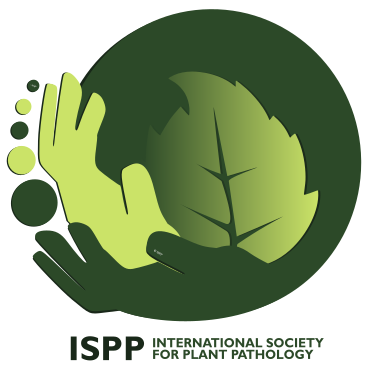|
The Task Force
FIRST MEETING
The Board of the British Society for Plant Pathology (BSPP) undertook to
support ISPP's Task Force initiative, by providing funding for an
initial meeting of the Task Force. This reflected a recognition that the
Task Force initiative arose at ICPP98, for which BSPP was responsible.
For its first meeting, the ISPP Task Force linked with a Round Table
meeting on:
SUSTAINABLE AGRICULTURE: THE GLOBAL ISSUE
in Bangkok,
13-15 September 1999
convened by the Asia Pacific Crop Protection Association (APCPA, an
industry-sponsored group) and the Global Forum for Agricultural Research
(GFAR, a group sponsored by FAO and the World Bank).
ISPP invited an international group of plant pathologists to be Members
of the Task Force, to participate in the first meeting, and to continue
to participate in the programme outlined above, which was to be
amplified at the first meeting.
Participation was confirmed by:
Chris Akem,
International Center for Agricultural Research in the Dry Areas
(ICARDA), Aleppo, Syria
Mike Jeger,
British Society for Plant Pathology (BSPP), Wageningen, Netherlands
Hajime Kato, Kobe, Japan
Jill Lenn, Natural Resources Institute,
Chatham, UK
Emmanuel Moses, Crops
Research Institute, Kumasi, Ghana
Chris Mundt,
Oregon State University, USA *
Rebecca Nelson,
International Potato Center, Lima, Peru *
Peter
Scott, International Society for Plant Pathology (ISPP), Oxford,
UK
CY Shen, Food and Agriculture
Organization of the United Nations (FAO), Bangkok, Thailand *
Paul Teng, Monsanto, Manila, Philippines
Nollie Vera Cruz, International Rice
Research Institute, Los Baos, Philippines *
* Not available for the September 1999 meeting.
The following SUMMARY is from the
REPORT of the September 1999 Meeting
SUMMARY
The activities of this Task Force relate to the 7th
International Congress of Plant Pathology (ICPP98), held in the
UK
in 1998 under the auspices of the International Society for Plant
Pathology (ISPP). During ICPP98, a public meeting was held on "Global
Food Security: The Role for Plant Pathology". The enormity of the
problem of food security was outlined, and its link with poverty, noting
especially the needs of developing countries where rates of population
increase are highest. The determination of the World Food Summit in
Rome
in 1996 to halve the number of hungry people by 2015 was noted.
The impact of pests, diseases
and weeds on food supply was highlighted, noting estimates that they
reduce production by at least one-third, and that diseases alone reduce
production by more than 10%. Options for managing crop diseases to
improve food security were addressed by five distinguished scientists,
including Nobel Peace Laureate Norman Borlaug.
During a public discussion of
these issues, ISPP accepted the challenge to form a Task Force on Global
Food Security.
The Executive Committee of ISPP, recognizing its
limited resources, adopted the principle that a small Task Force should
focus its activities, and should concentrate on delivering some tangible
results of demonstrable value. In consultation with ISPP Councillors,
representing national plant pathology societies, the Executive
determined that the first activity would be to hold a meeting of the
Task Force in Bangkok, in September 1999, in association with a meeting
on "Food for the Billions: Sustainable agriculture - the global issues"
organized by APCPA and GFAR. Eleven plant pathologists were identified
to form the Task Force, representing many different regions and
disciplines, of whom seven met in
Bangkok. The meeting was generously financed by
the British Society for Plant Pathology.
The
Task Force prepared for its first meeting by reading a series of papers,
including:
Papers from the World Food Summit, November 1996;
Papers related to plant pathology and food security, e.g. from ICPP98,
and from the APS/CPS 1999 meeting;
Papers on population growth and poverty, including links with plants;
Material proposed by Task Force Members themselves.
At
its meeting the Task Force elected to:
Focus on what ISPP
can do to deliver tangible
results;
Identify
changes that ISPP may bring
about;
Evaluate the
likelihood of achieving changes, given ISPPs status as an international
scientific society with limited resources;
Develop a
workplan, with timetable and
budget for 3 years, focusing on a small number of achievable objectives.
Six areas were addressed in which ISPP might
reasonably expect to be able to effect useful
change:
Policy changes;
Education changes;
R & D changes;
Farmer-practice changes;
Public opinion changes;
Information changes.
One member of the Task Force adopted each of these
topics, as indicated in the list above, and prepared a short paper
during the meeting, summarizing areas where change might be sought.
These papers were then debated by the Task Force, with a view to
prioritizing a smaller number of areas which offered the best
probability of change being successfully effected by ISPP. As part of
the process, the six topics were shared with representatives of National
Programmes in Asia, FAO and other
bodies represented at the APCPA and GFAR meetings, who joined the Task
Force for one of its sessions. Other input came from participation by
Task Force members in the APCPA and GFAR meetings.
These papers and resources were used as input in
the preparation of proposals for five
Activities. Each is presented,
with:
Rationale;
Objectives;
Activities plan;
Anticipated outputs;
Resource requirements (including proposals for sources).
|
|

